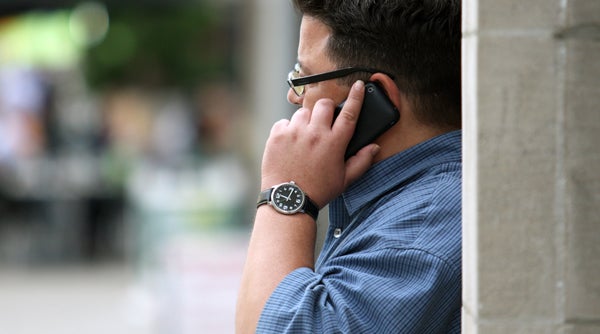Balancing privacy and safety, N.J. high court says cops need warrant to track cell data

(ShutterStock)
Adding to its reputation as a defender of privacy rights, the New Jersey Supreme Court has issued a ruling requiring police to get a search warrant if they want to track suspects using cell phone data.
In the unanimous decision, Chief Justice Stuart Rabner wrote that cell phone users expect the details of their lives stored in their phones to be confidential — and that the state should honor that expectation.
“People buy cell phones to communicate with others, to use the Internet, and for a growing number of other reasons,” he wrote. “But no one buys a cell phone to share detailed information about their whereabouts with the police.”
A national survey by the American Civil Liberties Union last year found that cell phone tracking by local law enforcement was widespread, even as it remained largely without court oversight.
The New Jersey Supreme Court stands out among lower courts across the nation as one of the most sympathetic to electronic privacy rights.
The court’s affinity, however, is tempered by an eye towards security.
“By providing greater clarity to the law in this area, we strive to meet two aims — to protect the reasonable expectation of privacy that cell-phone users have and, at the same time, to offer clear guidance to law enforcement officials so they may carry out important tasks in the interest of public safety,” Rabner wrote.
Decision standardizes common police practice
The new rule is disappointing for law enforcement officers who want to track crime suspects without delay, South Brunswick Township Police Chief Raymond Hayducka said.
“It makes an already difficult job more difficult,” said Hayducka.
Hayducka, a former president and now spokesman of the New Jersey State Association of Chiefs of Police, adds that officers in his station use cell phone data every week.
“It’s just common now that your investigations involve you getting some kind of data from a cell phone,” he explained. “It could be as simple as someone proving they were at a place or proving they weren’t at a place.”
Hayducka cited investigations of domestic violence and drug trafficking as two popular uses for cell phone tracking.
New Jersey does not keep complete records of how often police request phone data, or how many of those requests include specific warrants for cell phone location data.
But information obtained by the high court showed that policy encouraged some law enforcement agencies to apply for warrants anyway.
The state attorney general reported that the office has trained the Division of Criminal Justice and county prosecutor’s offices to get warrants for GPS location data since 2006. Local police forces did not receive the same instruction.
Additionally, a state survey of 21 county prosecutor’s offices also requested by the court found that police obtained warrants in 85 percent of 600 cases studied in a six-month period of 2012.
The court speculated that those figures could understate searches made without specific warrants for location data.
“Viewed from the perspective of a reasonable expectation of privacy,” Rabner remarked in the decision, “what was problematic in 2006 is plainly invasive today.”
N.J. Constitution goes beyond federal privacy protections
The New Jersey decision noted federal precedent both for and against warranted cell phone tracking by law enforcement agencies, but ultimately cited last year’s U.S. Supreme Court decision barring police from attaching a GPS device to a car without a warrant.
Search and seizure protections in the state’s constitution are considered to be more rigorous than those offered by the federal Fourth Amendment also backed up the court’s case.
Attorney Rubin Sinins, who argued the case for the American Civil Liberties Union of New Jersey and a state criminal defense lawyers association, says that’s why it’s easier for the New Jersey court to prohibit third parties such as phone and Internet service providers from disclosing personal information, even when federal courts do not.
“The federal courts have actually … interpreted the U.S. Constitution to the effect that if it’s information in the hands of third parties, it’s by definition not private,” Sinins said, adding that federal courts instead rely on specific statutes to safeguard privacy.
In the past, New Jersey’s high court has required police to get some kind of court oversight before searching everything from curbside garbage to Internet provider records.
Thursday’s ruling decides a 2006 case in which police traced burglary suspect Robert Earls using cell phone location data provided by T-Mobile. He later pleaded guilty to burglary and theft.
The new warrant rule will apply to Earls’ case, which will be decided in a lower court, and cases in the future.
Prior to the ruling, New Jersey law enforcement agencies only needed to prove the lower standard of “reasonable grounds” in order to track a cell phone’s location.
WHYY is your source for fact-based, in-depth journalism and information. As a nonprofit organization, we rely on financial support from readers like you. Please give today.




